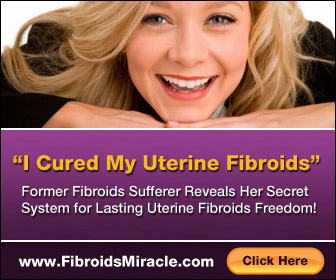One of the misconceptions regarding uterine fibroids is that they affect only child-bearing women. The truth is that entering into the menopausal years does not free a woman from experiencing these non-malignant growths.
Menopausal fibroids are a fairly common occurrence and carry the same potential effects as their counterparts during the pregnancy years. However, they can also be treated if properly diagnosed.
What Causes Menopausal Fibroids?
As of now, there is no concrete explanation as to what exactly causes fibroids to grow in the uterus. However, there is a link between fibroid growth and the rise of hormone levels.
To be specific, it has been noted that fibroids commonly occur when the progesterone and estrogen levels in the body are high. Conversely, they occur less when the levels of these hormones drop. If one has an existing fibroid problem, a drop in their estrogen levels can cause the growths to shrink and die.
Aside from hormonal changes, there are also other possible factors that increase one’s risk of developing fibroids. These include low Vitamin D levels, hypertension, obesity, experiencing late pregnancy, stress, and genetics.
Symptoms
Although technically being the same type as the uterine fibroids that develop during the pregnancy years, menopausal fibroids can affect women in a substantially different way. In fact, their presence can manifest in a number of symptoms that include the following:
- Excessive, heavy bleeding in the uterus
- Menstruation-like cramps
- Frequent urges to urinate
- Headaches and nausea due to continued hormonal imbalances
- Incontinence
- A feeling of fullness in the lower belly despite a light diet
- Frequent spotting
It is important to understand that the symptoms a fibroid causes depend greatly on where they grow and how big they are currently. For example, a big fibroid or a cluster of small ones that push against the uterine wall nearest to the bladder will cause frequent urinations. If they are closer to the stomach lining, they can cause more severe abdominal pains. And so forth.
Treatment
When one feels any of the symptoms above, it is highly advised that they set up an appointment with their doctor or obstetrician as soon as possible. A medical professional has the skills to properly identify the cause of the symptoms and rule out other possible conditions.
If they do confirm that you have menopausal uterine fibroids, they can suggest a number of treatment options.
Medication
Oral contraceptives are particularly effective against existing fibroid growths. Also, they contain hormone-inhibiting substances that can prevent future fibroids from forming.
However, not all birth control pills are applicable for this treatment. Progestin-only pills are recommended as they contain substances that also alleviate many menopausal symptoms.
Surgery
The first type of surgical procedure available for fibroid sufferers, myomectomy involves the creation of an incision in the abdomen where the doctor will then remove each fibroid cluster lining the uterus. The main advantage with this procedure is that it keeps the uterus functional.
The other, and more drastic, option would be hysterectomy. Here, the uterus will be fully or partially removed as well as other child-bearing organs. It is advisable only for extreme fibroid cases where the other treatment options are no longer effective.


